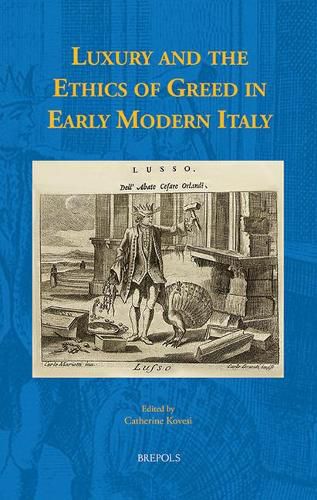Readings Newsletter
Become a Readings Member to make your shopping experience even easier.
Sign in or sign up for free!
You’re not far away from qualifying for FREE standard shipping within Australia
You’ve qualified for FREE standard shipping within Australia
The cart is loading…






This book unravels the complex interaction of the paradigms of luxury and greed which lie at the origins of modern consumption practices. In the Western world, the phenomenon of luxury and the ethical dilemmas it raised appeared, for the first time since antiquity, in early modern Italy. Here, luxury emerged as a core idea in the conceptualization of consumption. Simultaneously, greed–which manifested in new and unrestrained consumption practices–came under close ethical scrutiny. As the buying power of new classes gained pace, these paradigms evolved as they continued both to influence, and be influenced by, other emerging global cultures through the early modern period. After defining luxury and greed in their historical contexts, the volume’s chapters elucidate new consumptive goods, from chocolate to official robes of state; they examine how ideas about, and objects of, luxury and greed were disseminated through print, diplomacy, and gift-giving; and they reveal how even the most elite of consumers could fake their luxury objects. A group of international scholars from a range of disciplines thereby provide a new appraisal and vision of luxury and the ethics of greed in early modern Italy.
$9.00 standard shipping within Australia
FREE standard shipping within Australia for orders over $100.00
Express & International shipping calculated at checkout
This book unravels the complex interaction of the paradigms of luxury and greed which lie at the origins of modern consumption practices. In the Western world, the phenomenon of luxury and the ethical dilemmas it raised appeared, for the first time since antiquity, in early modern Italy. Here, luxury emerged as a core idea in the conceptualization of consumption. Simultaneously, greed–which manifested in new and unrestrained consumption practices–came under close ethical scrutiny. As the buying power of new classes gained pace, these paradigms evolved as they continued both to influence, and be influenced by, other emerging global cultures through the early modern period. After defining luxury and greed in their historical contexts, the volume’s chapters elucidate new consumptive goods, from chocolate to official robes of state; they examine how ideas about, and objects of, luxury and greed were disseminated through print, diplomacy, and gift-giving; and they reveal how even the most elite of consumers could fake their luxury objects. A group of international scholars from a range of disciplines thereby provide a new appraisal and vision of luxury and the ethics of greed in early modern Italy.